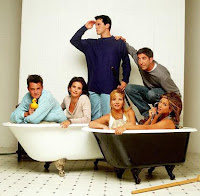When I was reading "Belief in the Effectiveness of Questionable Interpersonal Strategies," I was pretty stunned on how the two concepts of self-handicapping rang true in my personal life. First I think it's important to define them. "Real" self-handicapping being something that people literally do to stunt their performance, for example drinking before a big final exam. "Feigned" self-handicapping is when someone lies about what they did to prepare for something, for example a student who studied really hard for the test, but then says that they barely studied. Both of these forms of self-handicapping set the person up for expected failure due to either an excuse, or a hangover in the case of the first example. This provides the person with a cop out of sorts, so when they fail it's expected but if they succeed it's amazing and unexpected, even within themselves.
Being an athlete, I see this strategy employed all to often. In pick up games, when everyone has been training, one might hear, "I haven't been working out lately, so I might not be good today," or "Man, I must be a little rusty since I haven't been playing, otherwise I would never have missed that shot." Maybe I shouldn't be placing this strategy just on others, as I am just as much of a culprit as they are. What amazes me, is that people do it even though we see when others do it and call their bluff. The reason for that is that no one has the cajones to just say, "Hey, you're just playing bad cause you're talentless," or something along those lines.
People not hearing the truth enables these strategies to continue to thrive even though they definitely don't work. Name-dropping falls into this category, and boy to I have a whopper of a name-dropping story.
Here it goes, right after Michael Jackson died sometime last year I contacted one of my childhood friends who moved to Santa Barbara, California. Her and I had jammed out to MJ in her house when we were kids and I wanted to, I don't know, "mourn" with her. Let me just quote the wall comment conversation between the two of us :
Jordan: OK first of all, how's LA?
second, I thought I should contact you in loo of the death of a idol like Michael Jackson.
Then the United States started winning soccer games and I knew the world was gonna end so I'm trying to contact all friends past and present!
How have you been?
Lucinda (name-dropper): hahaha! i can't believe USA winning soccer games either. I was really bummed when they beat Spain! Cristiano Ronaldo is a really good friend of mine :(. And I am absolutely devastated about Michael Jackson. Crazy story but I was actually AT the hospital when it happened. I was having lunch with my friend who just BOUGH...T Neverland Ranch. When he got the call that Michael was rushed to the hospital he brought me along for the ride. We were IN his room when he passed away :( I was bawling crying...so sad. Anyway, on to happy things. I miss you so much! Come visit me for 4th of July...we are going to P Diddy's white party...gonna be insane! xoxoxoI kid you not this is an actual conversation... let's count the names dropped, shall we. Michael Jackson, Neverland Ranch dude, Christiano Ronaldo, and umm... P Diddy. Huh? I think I smelled the bullshit on MJ's deathbed, but she went so far as to crumble in pity for her dear "friend" Christiano Ronaldo... and then "on to happy things," P Diddy's white party.... SURE..... but I said nothing in return but maybe a WTF. It's funny cause her mom is the exact same way.... friends with Steven Speilburg if you can believe it! haha. That was the first thing that came to mind when I read the article, and I laughed out loud because I love that family so much, but IT IS SOOOO OBVIOUS that it's all lies....
Gilovich. "Belief in the Effectiveness of Questionable Interpersonal Strategies." Pg. 146 - 155.


